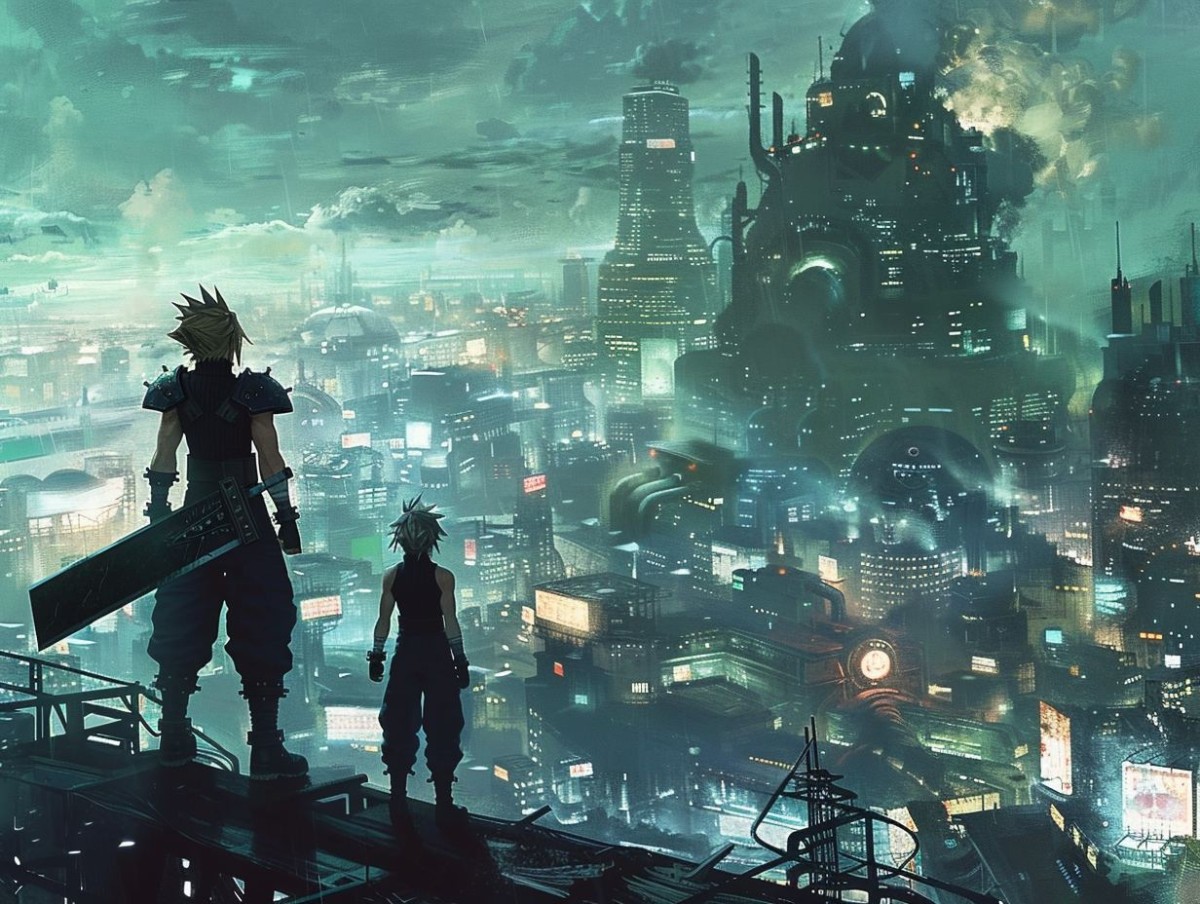Final Fantasy 7 stands out among video games, leaving an indelible mark on players worldwide. Its captivating storytelling and memorable characters have solidified its place in gaming history. Released over two decades ago, the original game continues to resonate with gamers, thanks to its ability to capture the essence of humanity through poignant moments and rich narrative depth.
One of the early scenes in Final Fantasy 7 exemplifies this human touch, as two children, Cloud and Tifa, make a heartfelt promise under the starlit sky. The game weaves a tapestry of emotions, from the sorrow of a grieving widow to the camaraderie between friends coping with loss. Such moments resonate deeply with players, forging an emotional connection transcending the digital realm.
Final Fantasy 7, made by Square before their merger with Enix, is lauded for its deft storytelling and compelling characters. The game’s music, composed by Nobuo Uematsu, adds another layer of emotion, with tracks like “Flowers Blooming in the Church” and “Still More Fighting” evoking a range of feelings. The pre-rendered backgrounds, meticulously crafted to evoke distinct atmospheres, further immerse players in the game’s world.
The impact of character deaths and unreliable narration
Central to Final Fantasy 7’s narrative is the death of a main character, a moment that reverberates throughout the gaming community. Tetsuya Nomura, the creative force behind the decision, aimed to evoke the raw emotion of loss, a sentiment that resonated even with young players like the article’s author. The game’s nuanced storytelling, characterized by unreliable narration, adds depth, inviting players to interpret events through multiple perspectives.
The death of a main character in Final Fantasy 7 is a pivotal moment that shapes the game’s narrative. Tetsuya Nomura, who made the decision to kill off the character, sought to convey the pain and anguish of loss, a theme that resonates with players of all ages. The impact of this event extends beyond the confines of the game, sparking discussions and debates among fans about its significance and implications.
Final Fantasy 7 remake balancing challenges and opportunities
When Square Enix announced plans to remake Final Fantasy 7 in 2015, it sparked excitement and apprehension among fans. While some welcomed the opportunity to revisit a beloved classic with modern enhancements, others expressed concerns about tampering with a masterpiece.
Kazushige Nojima, the scenario writer for both the original and the remake, echoed similar sentiments, fearing that a more detailed rendition might diminish the joy of individual interpretation.
The decision to remake Final Fantasy 7 posed a unique set of challenges for Square Enix. The original game was hailed as a masterpiece of its time, setting a high bar for any remake to meet. Developers faced the daunting task of balancing nostalgia with innovation, striving to capture the essence of the original while incorporating new elements to appeal to modern audiences.
Kazushige Nojima, the scenario writer for both the original and the remake, expressed concerns about maintaining the integrity of the original story while exploring new narrative avenues.
Striking a balance the evolution of Final Fantasy 7 remake
As the remake project unfolds, developers face the daunting task of balancing nostalgia with innovation. While staying true to the essence of the original, they aim to introduce fresh elements that enhance the gaming experience.
From revamped character interactions to stunning visual upgrades, the remake seeks to breathe new life into familiar landscapes while preserving the essence of the beloved classic.
The development team behind Final Fantasy 7 Remake is keenly aware of the expectations riding on their shoulders. With a passionate fanbase eagerly anticipating the release, they strive to deliver a gaming experience that honors the legacy of the original while pushing boundaries in storytelling and gameplay.
As the project nears completion, all eyes are on Square Enix to see if they can successfully strike a balance between honoring the past and embracing the future.





